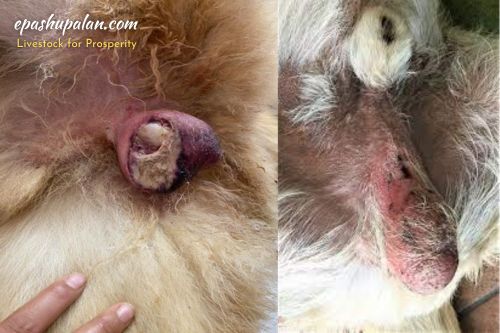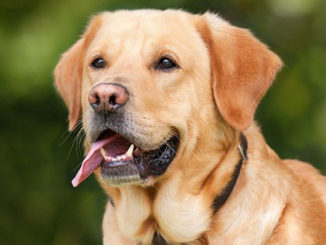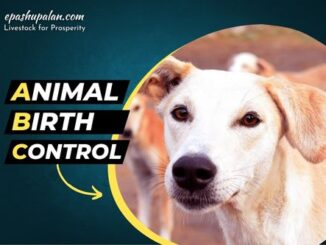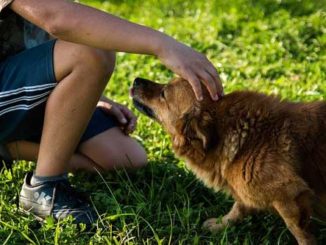Orchitis
Orchitis is a condition occasionally experienced by dogs and is physically characterized by the swelling/inflammation of one or both testes. The conditions can be very serious. The condition is often aggressive and may lead to permanent damage to affected parts.
While the condition can be chronic or acute. Breed does not indicate the probability of a dog being affected. If orchitis condition has left unchecked or untreated, it may lead to infertility.
Causes
- Acute forms of this condition are most often caused by trauma to the scrotum.
- Orchitis can also be triggered by infectious organisms.
- Bite wounds on any area of the body can also lead to the development of orchitis.
- The condition has various possible causes, which include physical injury and secondary infection during penetration, infectious organisms such as distemper, or complications from bacteria-carrying prostatitis.
- There is an immune-mediated variant orchitis known as lymphocytic orchitis

Symptoms
- Swollen testicles
- Licking of the scrotum and scrotal skin irritation
- Symptoms include pain and fever
- Unwillingness to walk and general lethargy
- Open wound may be found
- Refusal to eat is common
- Infertility
Diagnosis
Thorough physical examination on the dog, taking history, related symptoms and any other possible incidents have to be taken. Other potential causes of the above-mentioned symptoms include hernia of the scrotum, scrotal dermatitis, twisting of the spermatic cord, sperm-filled mass of inflamed tissue (granuloma), fluid-filled sacks on the spermatic cord (hydrocele), prostatitis, cystitis, and abnormal cell growth (neoplasia). Before treatment can begin, all of these conditions must first be ruled out.
Other additional test that can confirm orchitis:
- Brucella canis serum titers
- Blood cultures
- Complete blood count (CBC)
- Urinalysis with culture and sensitivity
- Fungal serology titers
- Cytology and culture of semen
- Biochemical profile
- Testicular aspirate with cytology and culture
- Scrotal ultrasound
- Biopsy or castration with histopathology

Treatment
- Castration: If it affects only one side of the testes (unilateral), partial castration may be an option. However, if the condition affects both sides, or if the dog is not intended for breeding, full castration is generally recommended.
- Antibiotic therapy
- Intravenous fluids
- Anti-inflammatory medication or analgesics
- Cold compresses
- Anti-fungal medication
- For immune mediated disease, immunosuppressive drugs such as prednisone are indicated
Prognosis
Prognosis of a full recovery for dog is poor. No matter how aggressive we try to treat it, if it is a chronic condition or ascending infection, it may lead to incurable prostatitis. If we the condition early, we should neuter the dog to avoid further complication.
Prevention
If castration was done already, the incision should be checked daily for further swelling or discharge. If skin sutures should be removed in 7 to 10 days. If the dog begins to lick the area excessively, an Elizabethan collar may be advised to prevent licking.
Conclusion
The best prevention for orchitis is castration at an early age. Animals that are not castrated should have recheck evaluations.
Reference
- Egloff, M. Schneeberger, S. Gobeli Brawand, C. Krudewig, S. Schmitt, I. Reichler, S. Peterhans (2018): Brucella canis infection in a young dog with epididymitis and orchitis. Band 160, Heft 12, Dezember, 743–748. A Case reports.
- https://www.petplace.com
- Orchitis and Epididymitis in Dogs and Cats – MSD Veterinary …https://www.msdvetmanual.com › reproductive-system
- Epididymitis and Orchitis in Dogs – Symptoms, Causes … – Wag!https://wagwalking.com › Dog Conditions
- Testicular Swelling in Dogs – PetMDhttps://www.petmd.com › Diseases A-Z
How useful was this post?
Click on a star to review this post!
Average Rating 4.2 ⭐ (451 Review)
No review so far! Be the first to review this post.
We are sorry that this post was not useful for you !
Let us improve this post !
Tell us how we can improve this post?
Authors
-

Department of VCC, CoVSc & AH, CAU (I), Jalukie, Peren, Nagaland
Recent Posts -

Department of ILFC, CoVSc & AH, CAU (I), Jalukie, Peren, Nagaland
-

Department of LPM, CoVSc & AH, CAU (I), Jalukie, Peren, Nagaland
Recent Posts -

Department of VCC, CoVSc & AH, CAU (I), Jalukie, Peren, Nagaland
Recent Posts -

Department of VCC, CoVSc & AH, CAU (I), Jalukie, Peren, Nagaland
Recent Posts -

Department of VCC, CoVSc & AH, CAU (I), Jalukie, Peren, Nagaland
Recent Posts -

Department of VGO, CoVSc & AH, CAU (I), Jalukie, Peren, Nagaland
Recent Posts





Be the first to comment